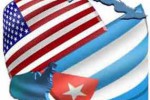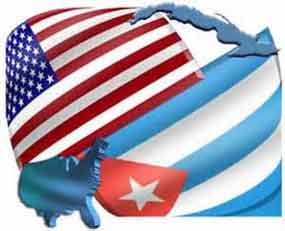 Declassified documents from the Gerald R. Ford Presidential Library reveal that former Secretary of State Henry A. Kissinger drafted secret plans to launch airstrikes on Cuba in 1976, said an article published today in The New York Times.
Declassified documents from the Gerald R. Ford Presidential Library reveal that former Secretary of State Henry A. Kissinger drafted secret plans to launch airstrikes on Cuba in 1976, said an article published today in The New York Times.
The documents were declassified at the request of the research group called the National Security Archive. The New York Times put the news on page A12 of today’s paper.
The documents show how Kissinger convened a group of high government officials to work on possible reprisals against Cuba after it deployed a military contingent in Angola at the request of the government of that African country.
The New York Times reveals that the officials gathered by Kissinger drafted plans to attack ports and military installations in Cuba, and included a plan to send infantry battalions to the U.S. naval base at Guantanamo, on Cuban soil, illegally occupied by the United States since 1902.
The plan hatched by Kissinger, when Gerald Ford was president, suggested that scores of combat aircraft be deployed and Cuban ports mined.
The New York Times adds that the group warned that the United States might be in serious danger of losing its naval base in Cuba, vulnerable to receiving a counter-attack from Cuban armed forces.
The cost of re-opening the Ramey Air Force Base in Puerto Rico if it were forced to reposition destroyers was estimated at $120 million USD.
Kissinger drew up proposals for an eventual military blockade of Cuban coastlines, despite his realization that such actions would lead to a conflict with what was then the Soviet Union, a close ally of Cuba.
“If we decide to use military power, it must succeed,” Kissinger said in a meeting, according to the declassified documents.
“There should be no halfway measures we would get no award for using military power in moderation. If we decide on a blockade, it must be ruthless and rapid and efficient,” he emphasized, nearly 40 years ago. The notes show that Donald H. Rumsfeld, who went on to be the U.S. Secretary of Defense from 1975-1977 under Ford’s presidency and again during the presidency of George W. Bush, was also present at the meeting in which Kissinger ordered contingency plans to be drawn up against Cuba.
Neither Kissinger, who is now 91, nor Rumsfeld, 82, agreed to comment on the revelations.
Kissinger’s plans, drafted during the 1976 presidential campaign, went nowhere, when Democrat Jimmy Carter was elected president.
The documents cited by the New York Times appear in the new book Back Channel to Cuba, written by William M. LeoGrande, a professor at American University in Washington DC, and Peter Kornbluh, who runs the Cuba document collection effort for the National Security Archive group.
 Escambray ENGLISH EDITION
Escambray ENGLISH EDITION





Escambray reserves the right to publish comments.